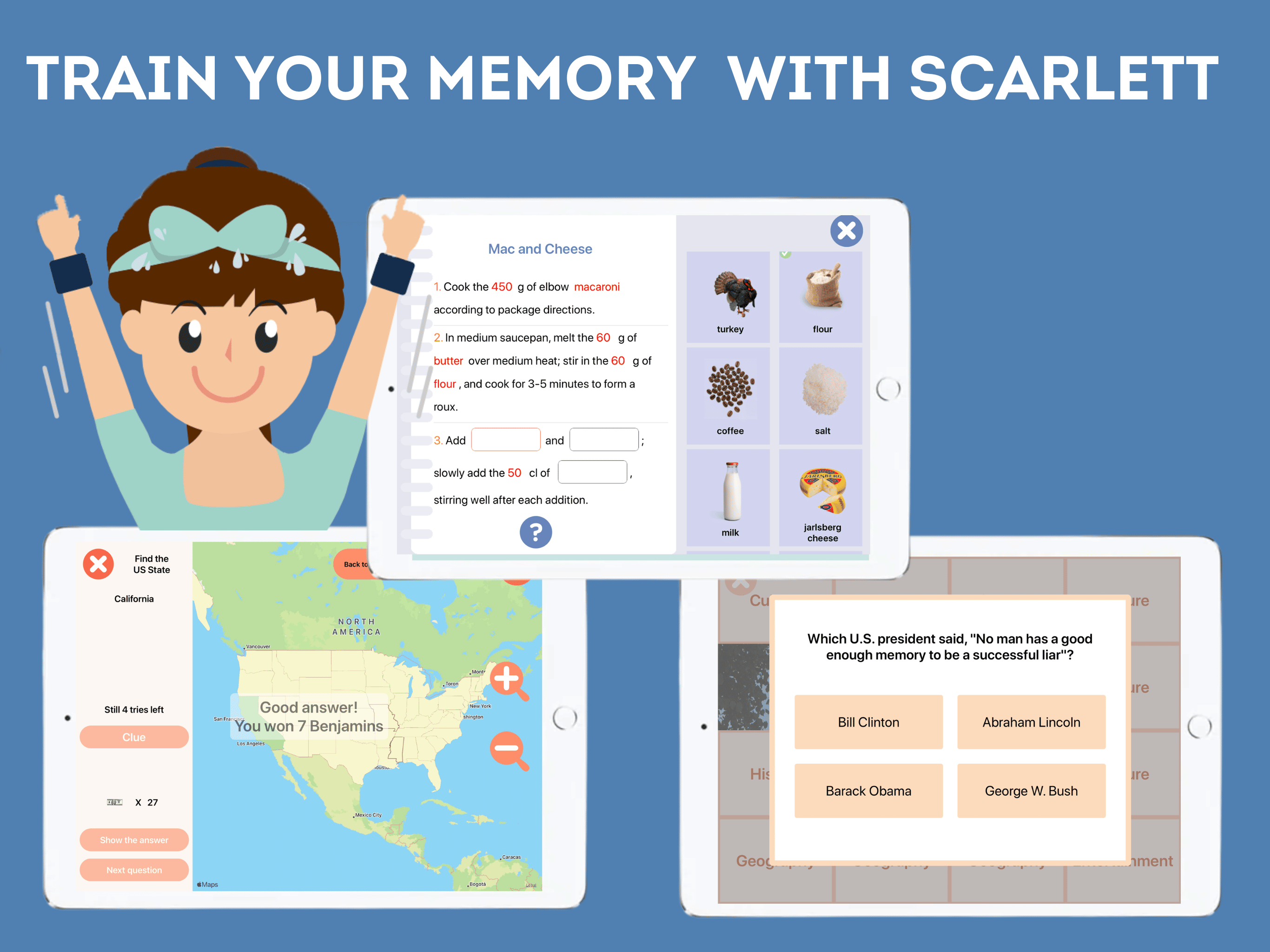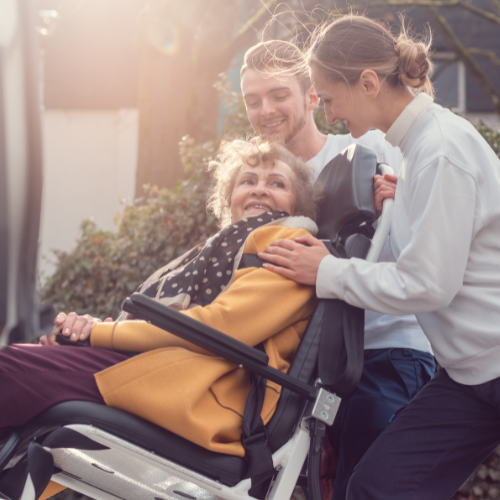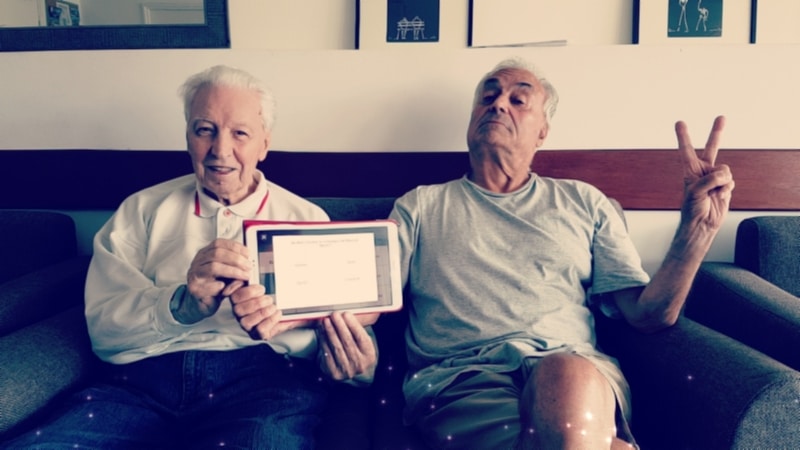As our loved ones age, it can be challenging to determine when they need additional support and care. One option to consider is senior living, which provides a range of services and amenities to help seniors live comfortably and safely as they age. Here are some signs to look out for that may indicate your loved one could benefit from senior living:
Difficulties with Activities of Daily Living
ADLs are tasks that are necessary for daily life, such as bathing, dressing, grooming, and cooking. If your loved one is having difficulty with one or more of these tasks, it may be time to consider senior living. These communities can provide assistance with ADLs, allowing your loved one to maintain their independence while receiving the help they need.
As seniors age, they may experience difficulties with Activities of Daily Living (ADLs), which are the essential tasks necessary to maintain independence and live a quality life. However, for seniors with dementia, these difficulties can be more challenging and complex. Dementia is a progressive neurological disorder that affects memory, cognitive function, and behavior. As a result, seniors with dementia may struggle with ADLs, such as bathing, dressing, grooming, and cooking, which can impact their overall well-being.
Bathing and Personal Hygiene
Seniors may have difficulty with personal hygiene and bathing due to confusion, physical difficulty or forgetfulness. This is a sign that your loved one will be more at ease in a senior living community. For seniors with dementia, it’s even more obvious, as they may not remember how to properly wash themselves, or they may become agitated or combative during the process.
Professionnal caregivers can provide step-by-step instructions and assist with bathing, as well as try to make the experience more pleasant with calming music or aromatherapy.
Dressing
Seniors may struggle with dressing due to confusion or difficulty with motor skills. They may forget how to put on clothes, become disoriented while dressing, or wear the wrong clothing for the weather. Caregivers in senior living communities can help by laying out clothing in the correct order and providing gentle reminders and guidance throughout the process.
Grooming
Seniors may struggle with grooming, such as brushing teeth, combing hair, or shaving. They may forget the steps involved in these tasks or become anxious or resistant to the process. Caregivers can help by providing clear instructions, breaking down the task into manageable steps, and using visual cues, such as a mirror or pictures, to assist with the process.
Cooking and Meal Preparation
Seniors may struggle with cooking and meal preparation, and that’s one of the sign due to forgetfulness or confusion. They may forget how to use appliances, become disoriented while cooking, or forget to turn off the stove. To help with these difficulties, caregivers can simplify meal preparation, provide step-by-step instructions, and ensure that the kitchen is safe and free of potential hazards.
Finally, difficulties with ADLs can be challenging for seniors, and especially for seniors with cognitive disorders or with dementia, but caregivers in senior living communities can provide support and assistance to help them maintain their independence and dignity. It’s important to understand the unique challenges that seniors with dementia may face and provide care that is tailored to their individual needs. By providing support with ADLs, caregivers can help seniors with dementia live a more comfortable and fulfilling life.
Social Isolation
As we age, it can become more challenging to maintain social connections. If your loved one is spending more time alone and seems isolated, it may be time to consider senior living. These communities offer a range of social activities and opportunities for residents to connect with others, helping to combat loneliness and improve overall well-being.
Decline in Health
As we age, our bodies undergo a range of changes that can impact our overall health and well-being. Seniors may experience a decline in health due to a variety of factors, including chronic health conditions, medication side effects, and changes in mobility and cognitive function. Here are some common health declines that seniors may experience.
Mobility Issues
Seniors may experience mobility issues due to a range of factors, including arthritis, joint pain, or a decline in muscle strength. These issues can make it difficult to walk, climb stairs, or perform everyday activities, which can impact their overall quality of life.
Cognitive Decline
Seniors may experience cognitive decline due to a range of factors, including dementia or Alzheimer’s disease. This can impact their memory, decision-making ability, and overall cognitive function, making it difficult to perform everyday activities. With the Scarlett memory program, they’ll have more than 30 adapted memory games ready-to-use.
Chronic Health Conditions
Seniors may experience chronic health conditions, such as diabetes, heart disease, or respiratory problems. These conditions can impact their overall health and well-being and require ongoing management and treatment.

Medication Side Effects
Seniors may experience side effects from medication, including dizziness, nausea, or confusion. These side effects can impact their overall quality of life and make it difficult to perform everyday activities.
- Vision and Hearing Loss: Seniors may experience vision and hearing loss, which can impact their ability to communicate, navigate their environment, and perform everyday activities.
- Mental Health Issues: Seniors may experience mental health issues, such as depression or anxiety. These issues can impact their overall quality of life and require treatment and support.
- Nutritional Deficiencies: Seniors may experience nutritional deficiencies due to a range of factors, including changes in appetite or difficulty preparing meals. These deficiencies can impact their overall health and well-being and require dietary modifications or supplements.
In conclusion, seniors may experience a range of health declines as they age, which can impact their overall quality of life. It’s important for seniors to receive ongoing healthcare and support to manage these declines and maintain their independence and dignity. By understanding these common health declines and providing appropriate care and support, we can help seniors live a comfortable, fulfilling, and healthy life.
Safety Concerns
If your loved one is living alone and you have concerns about their safety, senior living may provide peace of mind. These communities are designed with safety in mind, with features such as handrails, grab bars, and emergency call systems. Additionally, staff members are available around the clock to provide assistance if needed.
Caregiver Stress
Caregiver stress is a common and often overlooked problem that can arise when a person takes on the responsibility of caring for a loved one. Caregiver stress can manifest in many ways, including physical exhaustion, emotional strain, and social isolation. It can be challenging to balance the demands of caregiving with other responsibilities, such as work and family. Additionally, caregivers may experience feelings of guilt, anger, or resentment, which can further exacerbate their stress. It’s important for caregivers to take care of themselves, seek support from others, and consider options such as respite care or senior living to alleviate some of the burden and ensure their own well-being.
If you are considering senior living for your loved one, it’s important to do your research and visit different communities to find the best fit. Look for a community that offers the services and amenities that your loved one needs, as well as a welcoming and supportive environment. With the right senior living community, your loved one can enjoy a comfortable, fulfilling, and safe retirement.

The benefits of a senior living community
When you decide to go for a senior living community for your loved ones, you have to remember that these places must be a safe place and they are here to help seniors maintain their independence and dignity as long as possible.
The main missions for us for a senior living community are:
- To Respect their Autonomy: It’s important to respect seniors’ autonomy and involve them in decisions about their care and daily activities. Encourage them to make choices and provide support and guidance when needed.
- To Foster Social Connections: Seniors may become isolated and lonely as they age, which can impact their mental and physical health. Encourage them to participate in social activities, such as clubs, volunteer groups, and exercise classes, to foster social connections and a sense of belonging.
- To Promote Safe Mobility: Mobility issues can impact seniors’ independence and dignity. Ensure that their living environment is safe and accessible, and provide assistive devices, such as canes or walkers, if needed.
- To Encourage Physical Activity: Regular physical activity can improve seniors’ physical and mental health and help them maintain their independence. Encourage them to engage in activities that they enjoy, such as walking, swimming, or gardening.
- To Provide Nutritious Meals: Proper nutrition is essential for seniors’ health and well-being. Provide them with nutritious meals that are tailored to their dietary needs and preferences.
- To Offer Assistance with Activities of Daily Living (ADLs): Seniors may need assistance with ADLs, such as bathing, dressing, and grooming. Provide them with assistance or arrange for in-home care services if needed.
- To Monitor Medications: Seniors may be taking multiple medications, which can have side effects or interactions. Monitor their medications and consult with their healthcare provider if necessary.
- To Respect their Dignity: It’s important to treat seniors with respect and dignity, and to avoid infantilizing or patronizing them. Encourage them to maintain their independence and participate in activities that are meaningful to them.
To provide memory care activities:
In a retirement home, it is very important to keep your memory active and to take advantage of all the activities proposed around memory training and memory care. As we have seen, retirement homes regularly use the Scarlett program to offer memory training adapted to the residents, but you can also offer a tablet with your loved one, this will have a double impact. Use a video app (Facetime, Skype, Google meet) to continue to see your relative even at a distance, to reassure him or her, and so that he or she does not feel abandoned. The second impact is to install the Scarlett app, which he can use alone, and thus play, stimulate himself on his side. This allows him to have a regular occupation, which is very important in a retirement home, to avoid boredom

Other articles you might be interested in:
The Role of Cognitive Apps in Speech Therapy for Alzheimer’s Patients
Alzheimer’s disease is a progressive neurological disorder that primarily affects memory, thinking, and behavior. As...
Memory Apps for Alzheimer’s: Enhancing Recall in Speech Therapy Sessions
Alzheimer's disease is a progressive neurological disorder that primarily affects memory, thinking, and behavior. As...
Cognitive Rehabilitation Apps for Speech Therapy with Alzheimer’s Patients
In recent years, the landscape of cognitive rehabilitation has evolved significantly, largely due to the advent of...







